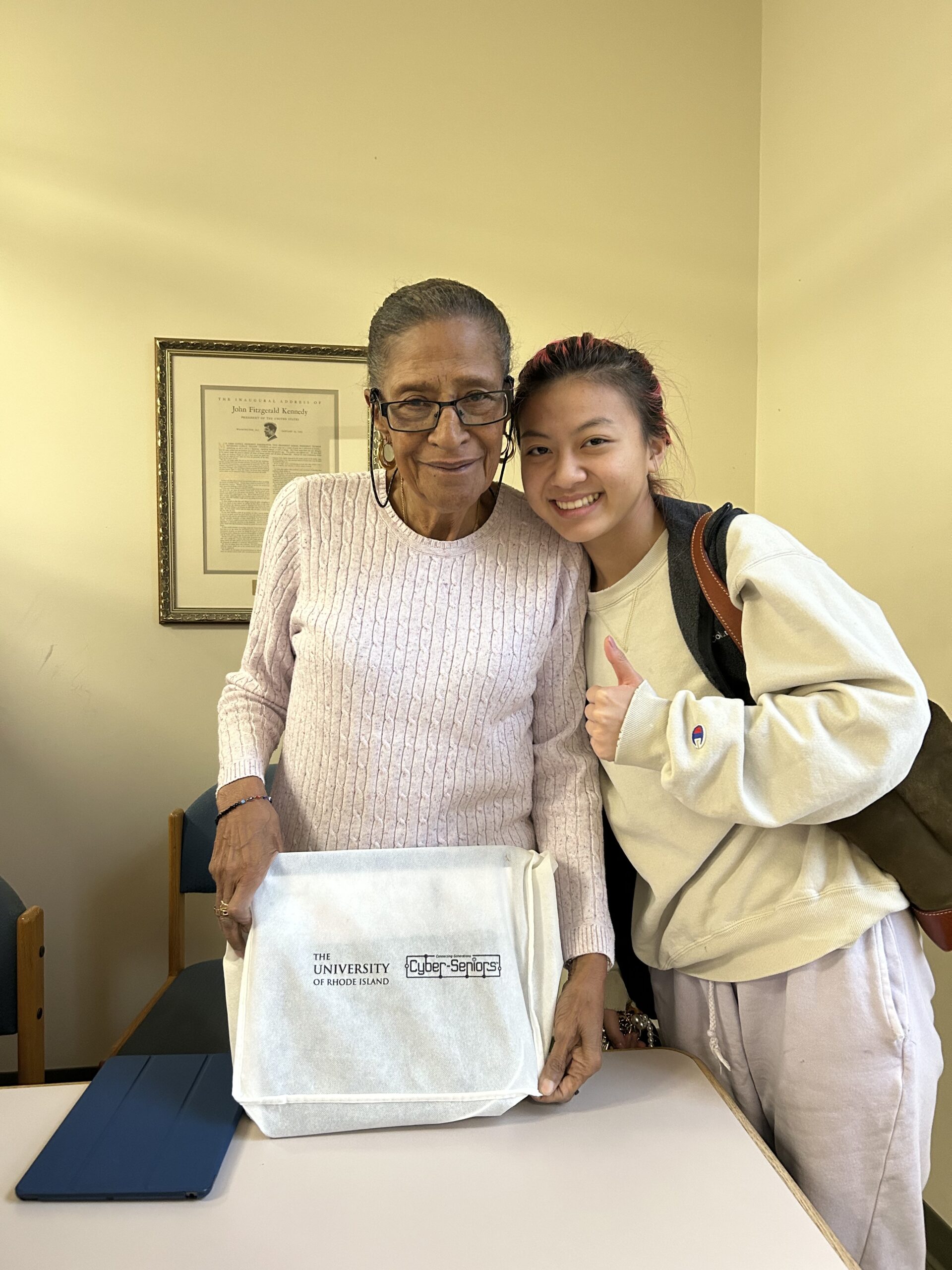College students help connect elders with lessons on all things technology. PHOTO CREDIT: URI College of Health Sciences
At the University of Rhode Island, student mentors teach senior citizens how to use technology in the “Cyber-Seniors: Connecting Generations” program, according to Skye Leedahl, associate professor in the human development and family science (HDF) department.
Leedahl said in 2015, she and a few other faculty members wanted to start an intergenerational program but didn’t know what to focus on. So, they brainstormed activities until they saw a documentary called “Cyber Seniors.” In the documentary, students from Canada taught seniors how to use technology. After watching it, the URI faculty decided this was their solution.
“The total number of seniors we’ve taught in Rhode Island is over 1,500 and the total number of students who’ve helped the seniors in the last five years is about 450,” Leedahl said.
Leedahl stated that the program has had a big impact on seniors who’ve participated. In the research she’s done about the seniors, she found that the program has helped them engage or connect with family and friends through a FaceTime video or a phone call.
According to Leedahl, the program runs from Mondays through Fridays from 9 a.m. to 4 p.m., and they tailor it to each student’s availability. For example, a URI student schedule could be at the senior center in Pawtucket, Rhode Island on Tuesday from 9 a.m. to 12 p.m.
“So we have a whole system where people can make appointments and then someone will call a student to teach them,” Leedahl said.
In the program, there are multiple classes seniors can take, and they are listed on a checklist provided by the program. For example, one class is about learning how to use an iPad. The program lends senior citizens devices one or allows them to bring their own.
The program has two phases. Phase one is learning the basics of the iPad and phase two is called Life Enrichment, according to Leedahl.
In phase one, the basics include many topics from turning the iPad on and off to opening apps. In Life Enrichment, sessions go further in-depth, like learning how to open apps and reviewing their location on the dock and the first two screens.
Meaghan Colvin, a fourth-year HDF student at URI, has been in the program since the spring of 2021. She started working there when she took Leedahl’s HDF 314: Later Adulthood Growth and Development, which was required as infield experience and has now become her current internship.
Colvin said while in the program, she’s had a wonderful experience because she always wanted to work with the elderly. The program also helped her gain intergenerational connections with the seniors.
“Seniors who really want help with using technology are usually people who want to connect with families,” Colvin said.
Colvin stated that once she gets a checklist from Leedahl, she asks her assigned senior what lessons they are comfortable with. These can be from learning how to write an email to using a Zoom call.
Colvin also said that the main centers she works at are the Narragansett Community Center, the Pilgrim Senior Center in Warwick, Rhode Island and the West Warwick Senior & Community Center. At those centers, she works with seniors aged 50 and above.
“They usually tell you their whole life story and it’s always the fun part because they also want to know about you,” Colvin said.
For students who are interested in the Cyber-Senior program, she said the huge benefit is the new relationships between the students and seniors. These connections, made from teaching technology, helps the seniors socially because now they can talk to anyone and helps students make new friends in the community.
“I think the most encouraging part that I see at the end of the program is asking people what they got out of it,” Colvin said. “It’s always the most heartfelt feeling because people get out in the community more.”





